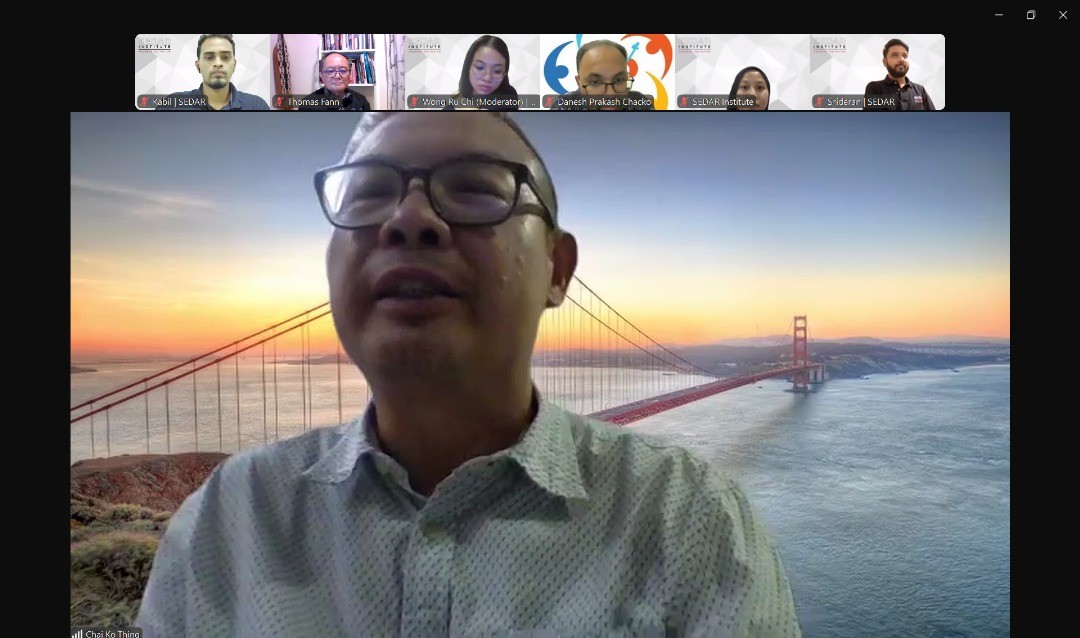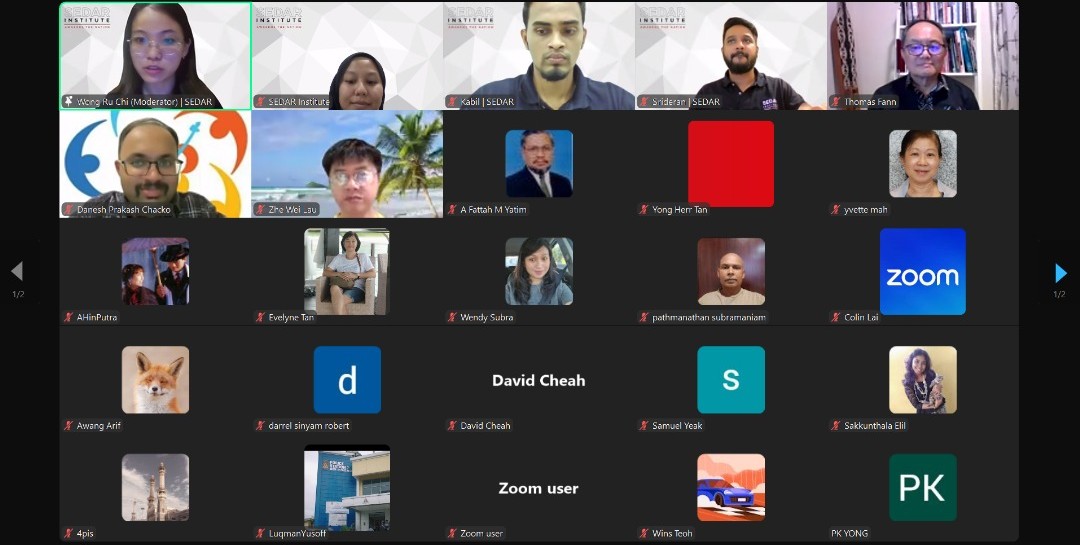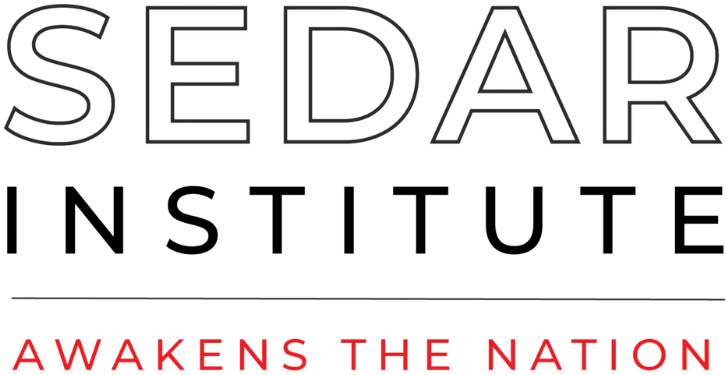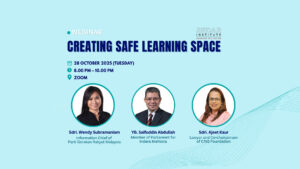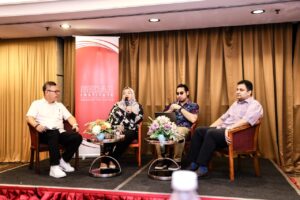On 28 May 2025, SEDAR Institute hosted an online panel discussion titled “Drawing the Lines: How Electoral Boundaries Shape Election Results.” The event featured two prominent panelists in the fraternity: Danesh Prakash Chacko, Co-Partner of Tindak Malaysia, and Thomas Fann, former Chairperson of BERSIH.
The discussion focused on the legal framework, issues, and reforms surrounding electoral boundary redelineation in Malaysia, particularly how malapportionment and gerrymandering impact voter equality and democratic integrity. The event attracted a total of 56 registered participants, various institutions and organisations including Tindak Malaysia, International Islamic University Malaysia (IIUM), Universiti Malaysia Sarawak (UNIMAS) Ikatan Demokratik Malaysia (MUDA) and many more.
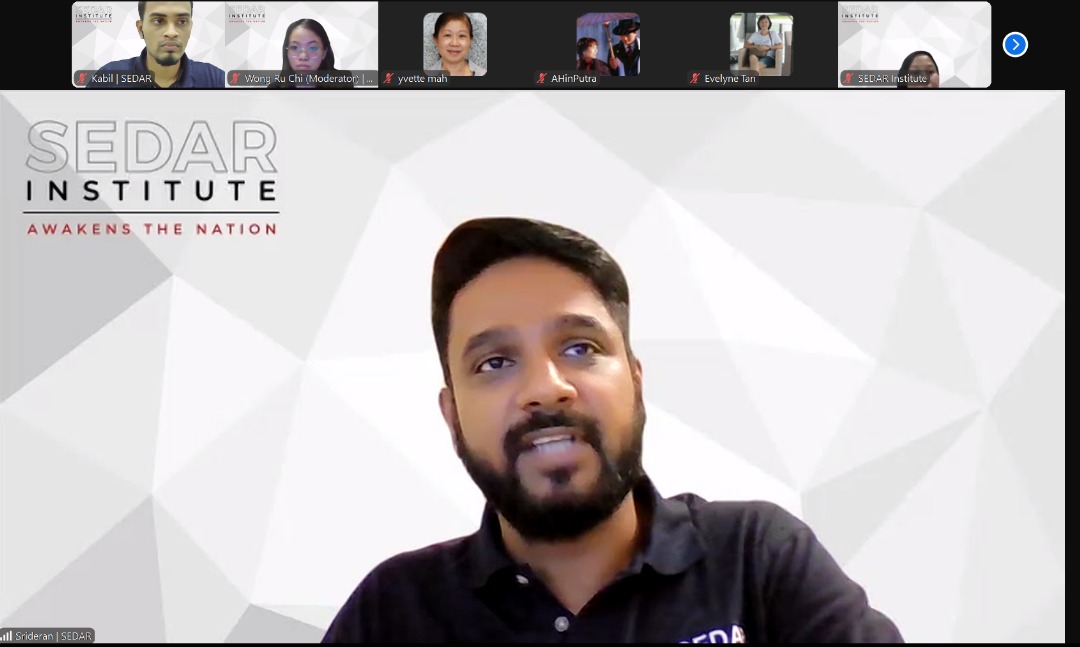
Presentations by Panellists
Danesh Prakash Chacko, Co-Director of Tindak Malaysia
Danesh opened the session by defining malapportionment and explaining both common and uncommon causes. He pointed out significant disparities in voter distribution, noting that some urban constituencies, like those in Selangor, have more voters than the entire state of Perlis.
He also highlighted unusual forms of malapportionment, such as in Bukit Gasing, where demographic shifts due to Undi18 have left the constituency underrepresented. He explained that the Automatic Voter Registration (AVR) and Undi18 reforms have reshaped the electoral landscape, leading to increased youth participation and greater ethnic diversity in constituencies.
Danesh then discussed whether a new redelineation exercise would be conducted, citing legal timelines and the lack of political will in Peninsular Malaysia. He proposed immediate and long-term reforms such as fixing polling district boundaries, enhancing transparency, enforcing constituency size limits, creating an independent Boundaries Commission, and reinstating the principle of simple multiple for constituency allocation.
Thomas Fann, Founder of Projek SAMA, Former Chairman of BERSIH
Thomas identified two main problems that affect the fairness of elections: malapportionment and gerrymandering. He illustrated extreme cases such as the Santubong constituency (in Sarawak), dubbed “The Dragon”, where rural and urban voters are grouped despite vastly different needs, violating the constitutional requirement to maintain local ties.
He proposed reforms including strengthening the legal framework for redelineation exercise, a separate body to conduct redelineation, and legislating the appointment of redelineation commission through the Parliamentary Special Select Committee (PSSC) to ensure independence.
Panel Discussion Highlights
The panel discussion began with a question by moderator Wong Ru Chi, referencing a suggestion by PAS encouraging young voters in Selangor to change their voting address. Danesh responded that such trends would result in voter “explosions” in urban constituencies like Shah Alam and Semenyih, altering demographics and potentially shifting political control. Thomas noted that NRIC address changes must be made within 90 days under the law, affecting auto voter registration for 18-year-olds.
On reform priorities, Thomas stated that knowing the Prime Minister’s choices for the PSSC is a practical first step. While he acknowledged that passing the Consituency Delimitation Act (CDA) would be challenging due to the need for a two-thirds majority, he stressed the importance of clearly defining apportionment to ensure fairness.
Another question was raised to address the narrative that redelineation reforms favour DAP or Chinese-majority areas, echoing claims by UMNO President Zahid Hamid. However, Danesh noted that many urban seats are now Malay-majority and urged moving beyond old narratives.
The panel also discussed the PH-BN power-sharing dynamic, with PH dominant in urban and BN in rural areas. The former BERSIH chairman anticipated that redelineation may only occur post-election and could involve gerrymandering that favors the unity coalition. Danesh, meanwhile, highlighted key challenges including East Malaysia’s ⅓ representation requirement and the current government’s limited interest in electoral reform, adding that any fair redelineation would naturally benefit some and disadvantage others.
Q&A Session
During the Q&A, SEDAR’s CEO Srideran asked whether the First Past the Post (FPTP) system should be replaced with Proportional Representation, a recommendation made by the Electoral Reform Committee (ERC) in 2018. Thomas, who was also part of the ERC, said the proposal is classified under the Official Secrets Act, but he supports electoral reform, especially given the rise of multi-party democracy and Sabah and Sarawak’s political evolution, which would benefit from a fairer, proportional system.
Another question by Dr. Lau Zhe Wei, Assistant Professor at IIUM, asked if it is possible to standardise the number of voters across constituencies and who has the authority to grant exemptions for rural areas. Danesh clarified that rural exemptions are already embedded in the 1973 constitutional amendment and that while full standardisation may affect Sabah and Sarawak’s representation, some equalisation could still be applied to about a quarter of constituencies.
In the final segment, Chai Ko Thing, Director of SEDAR Institute, raised the need for local council elections as a third layer of governance. Both panellists agreed that restoring these elections would enhance democracy, accountability, and help decentralize power away from the Federal Government and Prime Minister’s Office.

